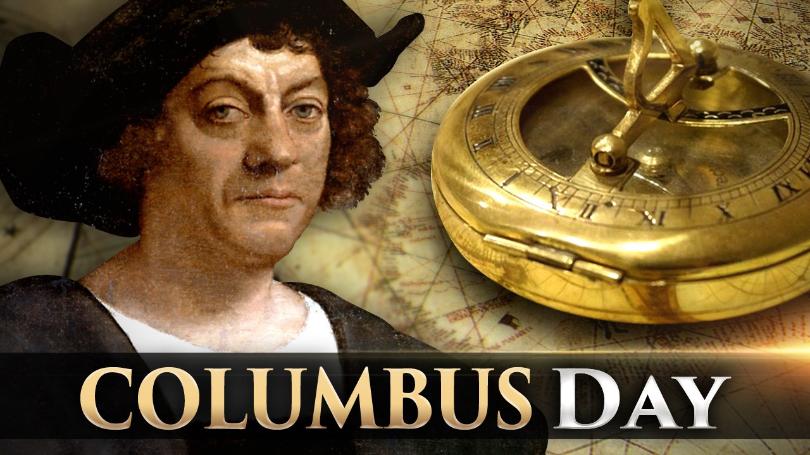Indigenous People’s day is a holiday first observed in South Dakota and then Berkeley, California, and ultimately, a few (usually left-of-center) municipalities. On Twitter and other forms of social media, however, one would think that the Indigenous People’s Day – which falls intentionally on Columbus Day – is some kind of national holiday (it is not, but Google includes it in all of our calendars as a “U.S. holiday” anyway). Protestants should rightly feel mixed emotions about Columbus’ religious intentions, but there is no doubt that with Columbus came manifold blessings for the people of the New World.
From my sermon yesterday…
While not all “Christianization” of culture is done by actual Christians, there is no doubt that the influence of those at least claiming the religion of Christ, built the foundations of what we now know as world civilization…
Western jurisprudence, English common law, the division of power of government known as Federalism, the notion of religious freedom and toleration, movements like the American Revolution, the Glorious Revolution of Great Britain, the French Revolution, documents like the Magna Carta, the Mayflower Compact, the English Bill of Common Rights, the Declaration of Independence, the expansion of empires across the ocean, the settling of the American frontier, the notion of Manifest Destiny, the impact of the Reformation and Counter-Reformation on the settling of the New World, the assumption of Civil Liberties, the Scientific Method, modern medicine, the basic building blocks of civilization that we now know throughout the world in any place that is not God-forsaken, are all the product of a dash of salt and a bit of light poured into and onto the world through a very, very small percentage of the world known as the Christian Church.
The impact of Christianity on world history is unfathomable, incalculable and unconquerable and even in nations like England or France (or America for that matter) where but a few were authentic believers, the impact of the religion of Christ, counted in millennia rather than decades, has been earth shattering, foundation-laying and world-changing.
Some seek to dismantle these very basic building blocks of the First World by claiming that there is such a thing known as “Western Christianity” that can be divided, or made distinct from some other kind of Christianity. We deny this notion. While beginning in Jerusalem, being advanced in its early years in places like North Africa, and settling its seats of influence in places like Antioch of Syria, Corinth, and ultimately Rome, the stream of authentic Christianity built what we now know as Western Civilization. We would not argue that there is a kind of Christianity that is unique to Western Civilization. We would argue that Western Civilization is the product of authentic Christianity.
Furthermore, we would argue that the vast majority of that which is of any value in human civilization, which benefits “human flourishing,” is intrinsically Western, but only because what we know as “Western” is ultimately that which is Christian.
This is not to say of course, that everything in Western Civilization is Christian or that everything claiming to be is either. As I said in the quotation from my manuscript above, the New World was settled in large part due to the contest between Protestants and Catholics (like Columbus) in the Reformation and Counter-Reformation. Even faux-Christianity, like that of the Jesuits which conquered parts of the Americas, is better for a culture than no Christianity at all.
The impact of Columbus’ voyage to America has been inherently (and mostly) good. To deny this is to deny objective, historical fact. Ultimately, aside from the benefits of Western Civilization brought by the Catholic navigator Christopher Columbus, this also inadvertently opened the doors of mass Protestant evangelism of the Americas. God’s providence indeed.
Watch Steven Crowder explain below
[Contributed by JD Hall]











